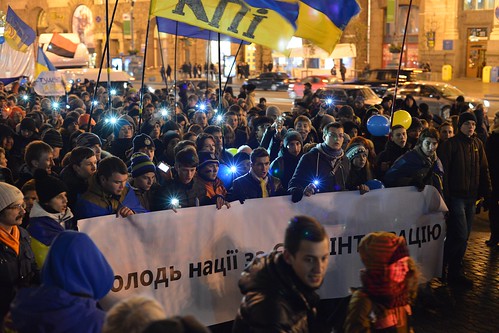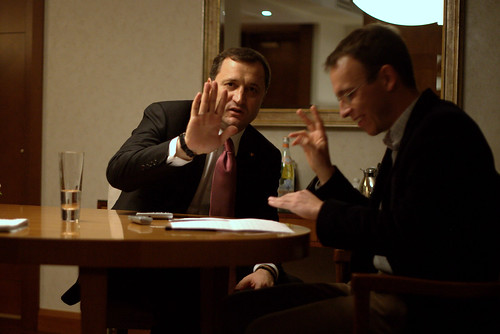Reacting to Ukraine’s protests
By Sean L Hanley, on 5 December 2013

Photo Ivan Bandura CC-BY 2.0
The return of sustained protest to the streets of Ukraine has hugely raised the political stakes comments Andrew Wilson.
The protests in Kiev are now two weeks old. They began after the Ukrainian government first decided to suspend negotiations with the EU on 21 November, but have gained new intensity after President Yanukovych left the Vilnius Summit on 28-29 November empty-handed, without signing the key Agreements. But the attempt at violent dispersal of the crowds on his return, on Saturday 30 November, only led to bigger demonstrations on the Sunday.
At the time of writing (Monday the 2nd), the protestors were looking more embedded – literally so, as several buildings have been occupied and barriers set up in the centre of Kiev. The stakes are especially high because the OSCE Ministerial Council is due to be held in Kiev on 5-6 December – the opposition want to keep the protest going until then, the authorities want to stamp them out. The ruling party is losing key members and morale.
What happens next?
One of the most depressing features of Ukraine’s many failures after the Orange Revolution in 2004 was that people lost the will to protest. Political demonstration even became an entirely artificial affair, with being-paid-to-protest becoming big business in Ukraine. So the return of real protests changes things dramatically. Participants at the first big demo held up signs saying “we are not paid”. The authorities are relying on the tired and discredited narrative that this is an artificial protest, ‘”paid for” by domestic oligarchs or foreign powers. At least in Kiev, everyone knows this is false. (more…)
 Close
Close


